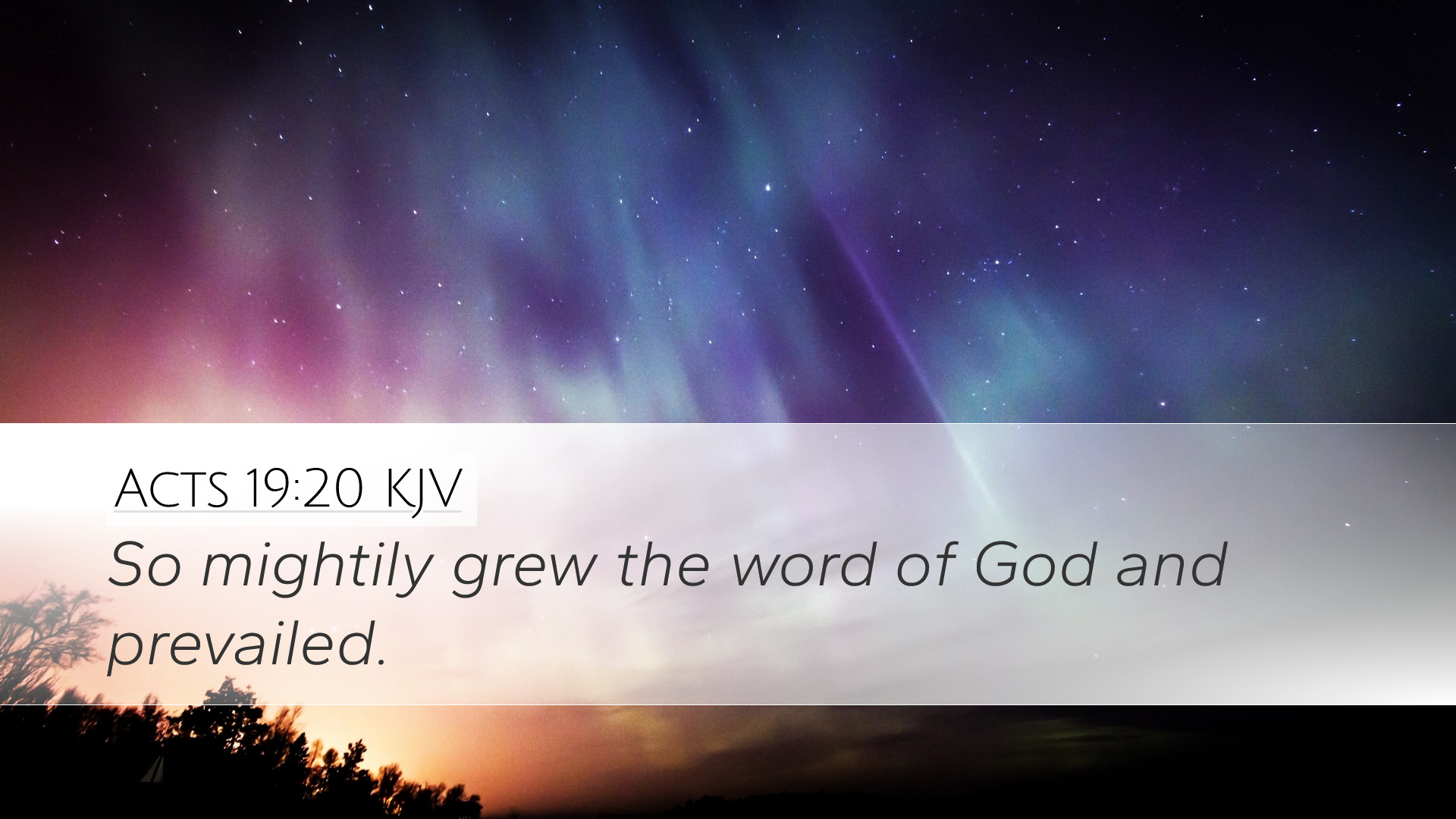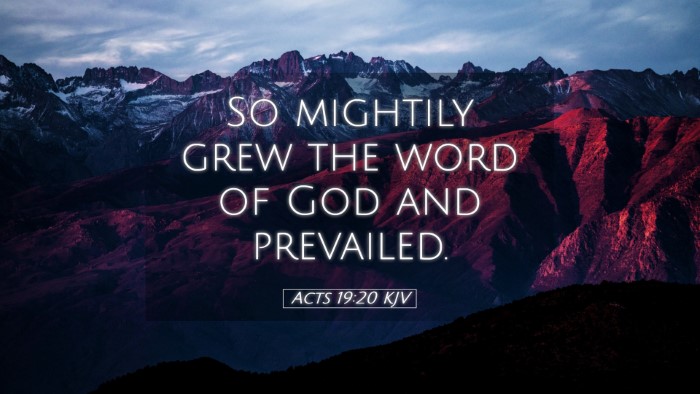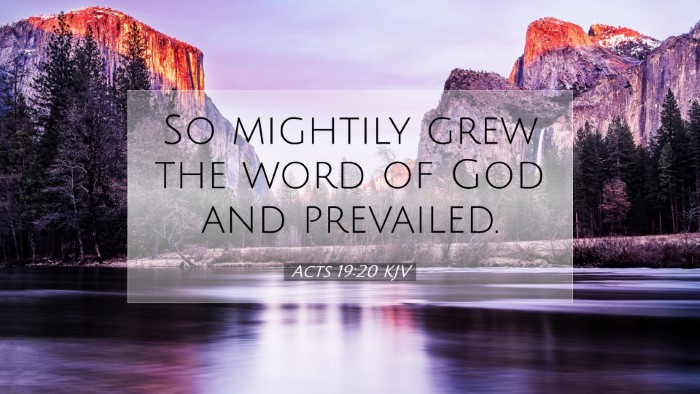Commentary on Acts 19:20
Verse Text: "So the word of the Lord grew mightily and prevailed."
Introduction
This verse encapsulates a significant shift in the early Church’s expansion and the impact of the gospel message in Ephesus. The phrase "the word of the Lord grew mightily and prevailed" serves as a concluding remark to a series of events surrounding Paul's ministry in the city, illustrated by the dynamic nature of the early Christian witness. Commentaries on this passage from scholars like Matthew Henry, Albert Barnes, and Adam Clarke emphasize various dimensions of this growth and victory, reflecting on historical context, spiritual significance, and practical implications.
Contextual Analysis
Acts 19 describes Paul’s extended stay in Ephesus, where he faced both spiritual and material opposition. These events are vital in understanding the growth of the word of God amid adversity. Each commentary highlights the importance of both the local community's response to the gospel and the overarching sovereignty of God in advancing His message.
Matthew Henry’s Perspective
Henry emphasizes the success of Paul’s ministry, noting that it was through the "might of God" that the word flourished. He relates this to the general principle that God's purpose cannot be thwarted, and highlights how the miraculous deeds performed by Paul validated the message of the gospel.
- Divine Empowerment: The success in Ephesus was grounded in God's power, which Henry argues is essential for genuine growth.
- Victory of the Gospel: This victory is portrayed as a triumph over evil practices, emphasizing how the gospel not only spread but also overwhelmed spiritual darkness.
Albert Barnes’ Insights
Barnes focuses on the implications of the phrase 'grew mightily.' He shares that the early Church, characterized by spiritual fervor and commitment, ensured that the word of God was effectively shared, resulting in transformative growth.
- Holistic Growth: Barnes highlights both quantitative and qualitative aspects of growth. He notes that not only did more people come to faith, but there was also a deepening of understanding and commitment among believers.
- Prevailing Word: Barnes draws attention to the word "prevailed," suggesting that the impact of the gospel message was not just in numbers but in changing lives and societal norms.
Adam Clarke’s Commentary
Clarke analyses the socio-political backdrop of Ephesus, connecting the text with the broader narrative of the early Christian movement. He reflects on how the fervency of the believers served a purpose beyond individual salvations; it acted as a catalyst for societal change.
- Resistance and Triumph: Clarke details the context of spiritual and physical opposition the church faced, arguing that despite the odds, God’s word prevailed, illustrating His ultimate authority.
- Cultural Influence: The upheaval caused by the growth of Christianity led to economic and religious shifts, indicating the far-reaching implications of the word’s power.
Theological Implications
Acts 19:20 is rich with theological implications, highlighting themes such as the authority of Scripture, the transformative power of God’s word, and the role of the Holy Spirit in the believers' lives.
- The Word's Authority: The commentaries collectively affirm the word of God’s supreme authority in guiding the lives of believers and shaping communities.
- Transformation: The active nature of the word illustrates that genuine faith results in both personal transformation and societal change.
Practical Applications
For pastors, students, and theological scholars, the implications of this text call for reflection on several key areas:
- Faithfulness in Proclamation: The insistence on sharing the gospel despite trials serves as a model for modern evangelistic efforts.
- Empowerment through the Holy Spirit: Recognizing the role of the Holy Spirit in enabling believers to carry out ministry work effectively.
- Community Engagement: The accounts in Ephesus encourage believers to actively engage with their cultures and communities, bringing about transformation through the gospel.
Conclusion
Acts 19:20 stands as a powerful affirmation of the effectiveness of God’s word and its capacity to confront and conquer darkness. The insights gleaned from public domain commentaries by Matthew Henry, Albert Barnes, and Adam Clarke provide a rich tapestry of understanding that encourages today’s readers to consider the text both personally and in broader ecclesiastical contexts. As the early Church exemplified, so too must believers in every generation trust that God’s word will grow mightily and prevail against all odds.


